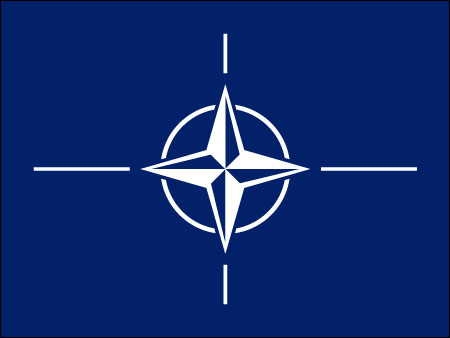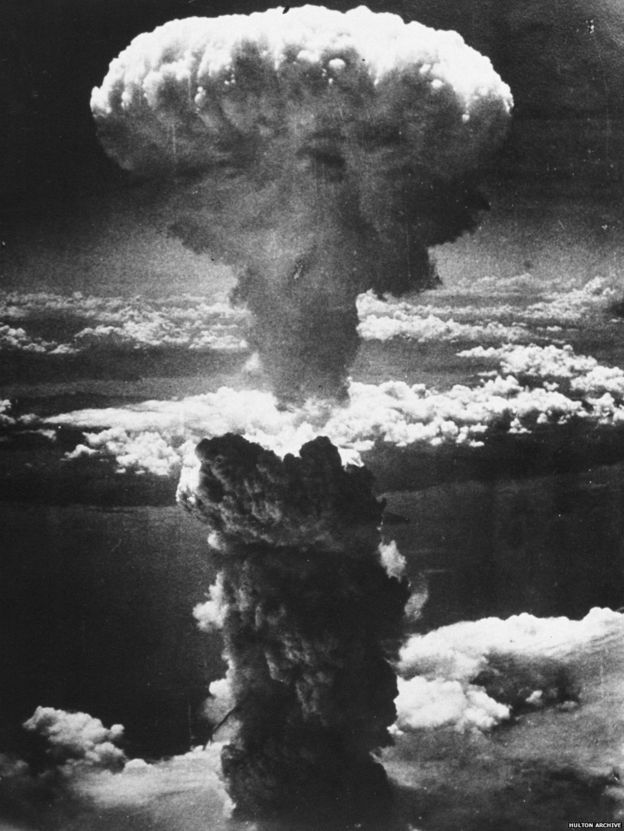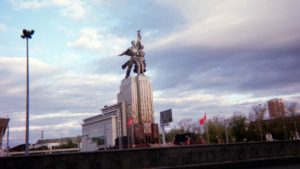
(Russian kids attending a youth camp called Artek in Crimea.)
This was posted at the website of the Center for Citizen Initiatives, which sponsored the 20-person delegation of citizen diplomats to Russia last month. If you are interested in attending the Center’s next delegation to Russia, scheduled for September, please contact me at natyliesb [at] gmail.com.
The following piece was written by CCI trip participant Ann Wright based on her experiences during the just-concluded CCI Russia trip.
OpEdNews.com
This article is a composite of the comments and questions that were asked to our 20-person delegation and to me as an individual. I do not attempt to defend the views but offer them as an insight into the thinking of many of the persons we came into contact with in meetings and on the streets.I’ve just ended two weeks visiting cities in four regions of Russia. The one question that was asked over and over was, “Why does America hate us? Why do you demonize us?” Most would add a caveat — “I like American people and I think YOU like us individually but why does the American government hate our government?”
None of the questions, comments or views tell the full story, but I hope they give a feel for the desire of the ordinary Russian that her country and its citizens are respected as a sovereign nation with a long history and that it is not demonized as an outlaw state or an “evil” nation. Russia has its flaws and room for improvement in many areas, just as every nation does, including for sure, the United States.
New Russia Looks Like You — Private Business, Elections, Mobile Phones, Cars, Traffic Jams
One middle-aged journalist in the city of Krasnodar commented, “The United States worked hard to make the Soviet Union collapse, and it did. You wanted to remake Russia like the United States — a democratic, capitalist country in which your companies could make money — and you have done that.
“After 25 years, we are a new nation much different from the Soviet Union. The Russian Federation has created laws that have allowed a large private business class to emerge. Our cities now look like your cities. We have Burger King, McDonalds, Subway, Starbucks and malls filled with a huge number of totally Russian business ventures for the middle class. We have chain stores with merchandise and food, similar to Wal-Mart and Target. We have exclusive stores with top-of-the-line clothing and cosmetics for the richer. We drive new (and older) cars now just like you do. We have massive rush hour traffic jams in our cities, just like you do. We have extensive, safe, inexpensive metros in all of our major cities, just like you have. When you fly across our country, it looks just like yours, with forests, farm fields, rivers and lakes — only bigger, many time zones bigger.
“Most people on buses and in the metro are looking at our mobile phones with internet, just like you do. We have a smart youth population that is computer literate and most of whom speak several languages.
“You sent your experts on privatization, international banking, stock exchanges. You urged us to sell off our huge state industries to the private sector at ridiculously low prices, creating the multi-billionaire oligarchs that in many ways mirror the oligarchs of the United States. And you made money in Russia from this privatization. Some of the oligarchs are in prison for violating our laws, just as are some of yours.
“You sent us experts on elections. For over 25 years we have held elections. And we have elected some politicians you don’t like and some that we as individuals may not like. We have political dynasties, just like you do. We don’t have a perfect government, nor perfect government officials — which is also what we observe in the U.S. government and its officials. We have graft and corruption in and outside of government, just as you do. Some of our politicians are in jail for violating our laws, just like some of your politicians are in jail for violating your laws.
“And we have the poor just like you do. We have villages, towns and small cities that are struggling with migration to the big cities with people moving in hopes of finding jobs, just like you do.
“Our middle class travels throughout the world, just like you do. In fact, as a Pacific nation just like the U.S., we bring so much tourism money with us on our trips that your Pacific island territories of Guam and the Commonwealth of the Northern Marianas have negotiated with the U.S. Federal government to allow Russian tourists to enter both of those U.S. territories for 45 days without the time-consuming and expensive U.S. visa.
“We have a strong science and space program and are a key partner in the International Space Station. We sent the first satellite into space and the first humans into space. Our rockets still take astronauts to the space station while your NASA program has been curtailed.”
Dangerous NATO Military Exercises Threatening our Borders
“You have your allies and we have our allies. You told us during the dissolution of the Soviet Union that you would not enlist countries from the Eastern block into NATO, yet you have done that. Now you are placing missile batteries along our border and you are conducting major military exercises with strange names such as Anaconda, the strangling snake, along our borders.
“You say that Russia could possibly invade neighboring countries and you have big dangerous military exercises in countries on our borders with these countries. We did not build up our Russian military forces along those borders until you continued to have ever increasingly large military ‘exercises’ there. You install missile ”defenses’ in countries on our borders, initially saying they are to protect against Iranian missiles and now you say Russia is the aggressor and your missiles are aimed at us.
“For our own national security, we must respond, yet you vilify us for a response that you would have if Russia would have military maneuvers along the Alaskan coast or the Hawaii islands or with Mexico on your southern border or with Canada on your northern border.”
Syria
“We have allies in the Middle East including Syria. For decades, we have had military ties to Syria and the only Soviet/Russian port in the Mediterranean is in Syria. Why is it unexpected that we help defend our ally, when the stated policy of your country is for ‘regime change’ of our ally — and you have spent hundreds of millions of dollars for Syrian regime change?
“With this said, we Russia saved the U.S. from an enormous political and military blunder in 2013 when the U.S. was determined to attack the Syrian government for “crossing the red line” when a horrific chemical attack that tragically killed hundreds was erroneously blamed on the Assad government. We provided you documentation that the chemical attack did not come from the Assad government and we brokered a deal with the Syrian government in which they turned over their chemical weapons arsenal to the international community for destruction.
“Ultimately, Russia arranged for the chemicals to be destroyed and you provided an especially designed U.S. ship that carried out the destruction. Without Russian intervention, a direct U.S. attack on the Syrian government for the mistaken allegation of use of chemical weapons would have resulted in even greater chaos, destruction and destabilization in Syria.
“Russia has offered to host talks with the Assad government about power sharing with opposition elements. We, like you, do not want to see the takeover of Syria by a radical group such as ISIS that will use the land of Syria to continue its mission to destabilize the region. Your policies and financing of regime change in Iraq, Afghanistan, Yemen, Libya and Syria have created instability and chaos that is reaching all over the world.”
Coup in Ukraine and Crimea Reuniting with Russia
“You say that Crimea was annexed by Russia and we say Crimea ‘reunited’ with Russia. We believe that the U.S. sponsored a coup of the elected Ukrainian government that had chosen to accept a loan from Russia rather than from the EU and IMF. We believe that coup and the resulting government was illegally brought to power through your multi-million dollar “regime change” program. We know that your Assistant Secretary of State for European Affairs Victoria Nuland described in a phone call that our intelligence services recorded the pro-West/NATO coup leader as ‘our guy-Yats.’
“In response to that US sponsored violent government take-over of the elected government of the Ukraine with a presidential election scheduled within a year, Russians in the Ukraine, particularly those in the eastern part of the Ukraine and those in Crimea were very afraid of the anti-Russian violence that had been unleashed by neo-fascist forces that were in the militia arm of the takeover.
“With the takeover of the Ukrainian government, ethnic Russians who composed a majority of the population of Crimea in a referendum participated by over 95 percent of the population of Crimea, 80 percent voted to unite with the Russian Federation instead of staying with Ukraine. Of course, some citizens of Crimea disagreed and left to live in Ukraine.
“We wonder whether citizens of the United States realize that the Southern Fleet of the military of the Russian Federation was located in the Black Sea ports in the Crimea and in light of the violent take over of Ukraine that our government felt it was vital to ensure access to those ports. On the basis of Russian national security, the Russian Duma (Parliament) voted to accept the results of the referendum and annexed Crimea as a republic of the Russian Federation and gave federal city status to the important seaport of Sevastopol.”
Sanctions on Crimea and Russia — Double Standards
“While the US and European governments accepted and cheered for the violent overthrow of the elected government of the Ukraine, both the US and European nations were very vengeful of the non-violent referendum of people of Crimea and have slammed Crimea with all sorts of sanctions that have reduced international tourism, the main industry of the Crimea, to almost nothing. In the past in Crimea we received over 260 cruise ships filled with international passengers from Turkey, Greece, Italy, France, Spain and other parts of Europe. Now, because of the sanctions we have virtually no European tourists. You are the first group of Americans we have seen in over a year. Now, our business is with other citizens from Russia.
“The U.S. and the European Union have put sanctions on Russia again. The Russian ruble has been devalued almost 50 percent, some from the downturn of worldwide price of oil, but some from the sanctions the international community has placed on Russia from the Crimea ‘reunification.’
“We believe you want the sanctions to hurt us so we will overthrow our elected government, just like you put sanctions on Iraq for the Iraqis to overthrow Saddam Hussein, or on North Korea, or on Iran for the people of those countries to overthrow their governments.
“Sanctions have the opposite effect than what you want. While we know sanctions do hurt the ordinary person and if left on a population for a long time can kill through malnutrition and lack of medicines, sanctions have made us stronger.
“Now, we may not get your cheeses and wines, but we are developing or redeveloping our own industries and have become more self-reliant. We now see how the globalization trade mantra of the United States can and will be used against countries that decide not to go along with the U.S. on its worldwide political and military agenda. If your country decides not to go along with the United States, you will be cut off from the global markets that the trade agreements have made you dependent upon.
“We wonder why the double standard? Why haven’t the member states of the United Nations put sanctions on the U.S. since you have invaded and occupied countries and killed hundreds of thousands in Iraq, Afghanistan, Libya, Yemen and Syria.
“Why is the U.S. not held accountable for kidnapping, extraordinary rendition, torture and imprisonment of almost 800 persons that have been held in the gulag called Guantanamo?”
Elimination of Nuclear Weapons
“We want the elimination of nuclear weapons. Unlike you, we have never used a nuclear weapon on people. Even though we consider nuclear weapons as a defensive weapon, they should be eliminated because one political or military mistake will have devastating consequences for the entire planet.”
We Know the Costs of War
“We know the terrible costs of war. Our great-grandparents remind us of the 27 million Soviet citizens killed during World War II, our grandparents tell us of the Soviet war in Afghanistan in the 1980s and the difficulties arising from the Cold War.
“We don’t understand why the West continues to vilify and demonize us when we are so much like you. We too are concerned about threats to our national security and our government responds in many ways like yours. We do not want another Cold War, a war in which everyone gets frost bitten, or worse, a war that will kill hundreds of thousands, if not millions of people.”
We Want A Peaceful Future
“We Russians are proud of our lengthy history and heritage.”
“We want a bright future for ourselves and our families…and for yours.”
“We want to live in a peaceful world.”
“We want to live in peace.”
Ann Wright is a 29-year US Army/Army Reserves veteran, a retired United States Army colonel and retired U.S. State Department official, known for her outspoken opposition to the Iraq War. She received the State Department Award for Heroism in 1997, after helping to evacuate several thousand people during the civil war in Sierra Leone. She is most noted for having been one of three State Department officials to publicly resign in direct protest of the 2003 Invasion of Iraq. Wright was also a passenger on the Challenger 1, which along with the Mavi Marmara, was part of the Gaza flotilla. She served in Nicaragua, Grenada, Somalia, Uzbekistan, Kyrgyzstan, Sierra Leone, Micronesia and Mongolia. In December, 2001 she was on the small team that reopened the US Embassy in Kabul, Afghanistan. She is the co-author of the book “Dissent: Voices of Conscience.” She has written frequently on rape in the military.
Like this:
Like Loading...




